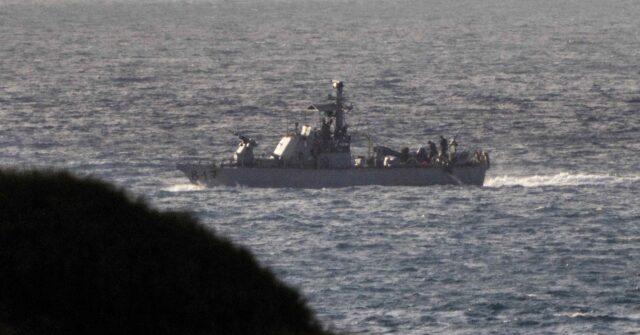The Israel Defense Forces (IDF) have taken decisive action in their ongoing conflict with Hezbollah by announcing a naval assault on southern Lebanon from the Mediterranean Sea. With tensions escalating, the IDF has issued urgent warnings to civilians, particularly those near the coast, urging them to evacuate the area and avoid proximity to the beach. The IDF’s Arabic-language spokesman, Col. Avichay Adraee, highlighted the intent to target Hezbollah positions, indicating that operations would be coordinated from land, air, and sea, marking a significant tactical approach against the Iranian-backed militia. This multi-faceted strategy aims to apply pressure on Hezbollah, which has been a persistent threat along Israel’s northern borders.
The IDF’s operations in southern Lebanon involve targeting Hezbollah’s military apparatus, evidenced by the recent discovery of a combat compound in the Maroun El Ras region. This compound was strategically positioned to threaten Israeli border communities and housed a range of military assets, including rocket launchers ready for use against Israeli targets. In addition to these launchers, significant stockpiles of weapons such as anti-tank missiles, military vests, and camouflage netting were found and destroyed. The military’s focus is not only on neutralizing current threats but also on dismantling Hezbollah’s operational capabilities by targeting their infrastructure within Lebanon, which had been cleverly concealed within civilian structures, including residential buildings.
Moreover, the IDF’s efforts extend to finding and neutralizing threats integrated within civilian frameworks, as illustrated by the identification of Hezbollah operatives using a school to house a rocket launcher aimed at Israel. This tactic raises serious concerns regarding the militarization of civilian spaces by Hezbollah, complicating the IDF’s operational landscape and presenting an ethical dilemma in combat scenarios. The IDF’s countermeasures, including the destruction of rocket launchers used in recent attacks against the Israeli coastal city of Haifa, demonstrates a commitment to safeguarding civilian lives while maintaining aggressive action against Hezbollah.
On the operational front, Hezbollah has displayed its capability to launch numerous rockets toward Israeli territories, with a reported 100 rockets targeted at Haifa recently. Most of these projectiles were intercepted by Israeli defense systems, though some managed to hit civilian structures without causing injuries. The IDF’s response to this escalation has been swift, emphasizing their objective to dismantle the immediate threats posed by such rocket attacks. This dynamic highlights the ongoing and volatile nature of the conflict, where both sides continuously seek to assert dominance and retaliate against the other’s provocations.
The conflict’s repercussions extend beyond military engagements, influencing broader regional stability and international relations. The continued exchanges of fire and military actions not only impact the local civilian populations but also attract international scrutiny regarding the humanitarian implications of such warfare. As the IDF engages in both preemptive and reactive measures against Hezbollah, it is essential to consider the potential for further escalation, which could destabilize the region further. The operation also underscores the strategic importance of Israeli intelligence and military operations in countering not just immediate threats from Hezbollah, but also preventing their long-term strategic goals.
As the situation unfolds, the roles of media and the narratives surrounding this conflict remain critical. The portrayal of events, such as the unveiling of Hezbollah’s hiding tactics and the IDF’s operational successes, shapes public perception and reactions both domestically within Israel and internationally. With figures like Joel B. Pollak emphasizing the necessity for decisive actions against terrorism, public discourse increasingly revolves around the balance between military necessity and humanitarian considerations. The ongoing conflict poses intricate challenges that require delicate navigation amid a backdrop of heightened tensions and a persistent threat to security in the region.

